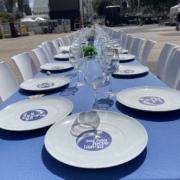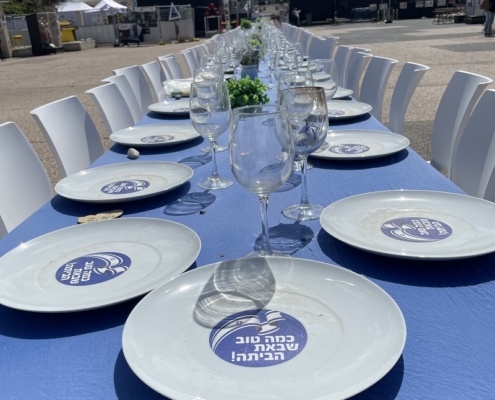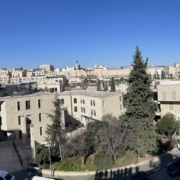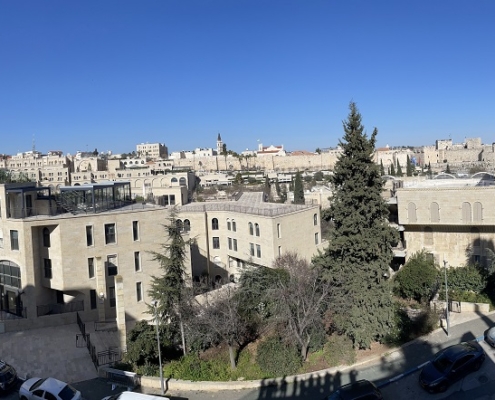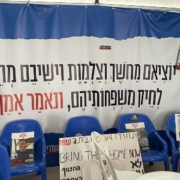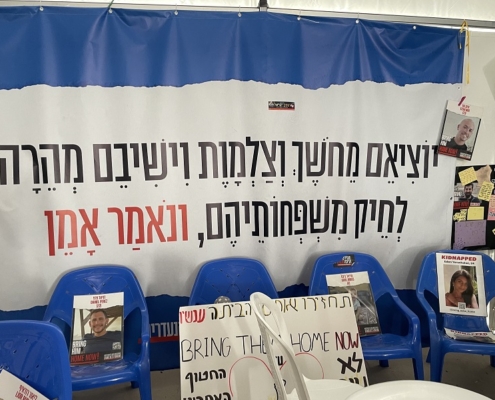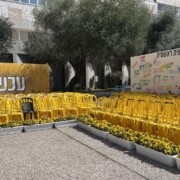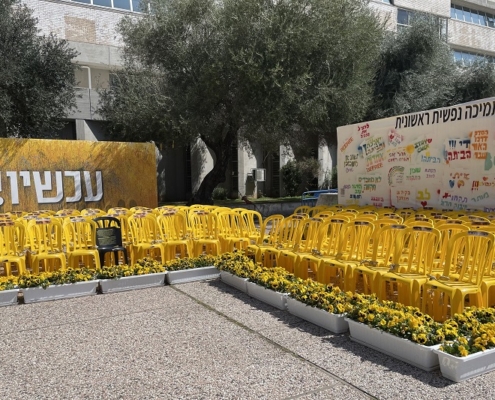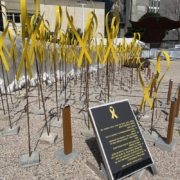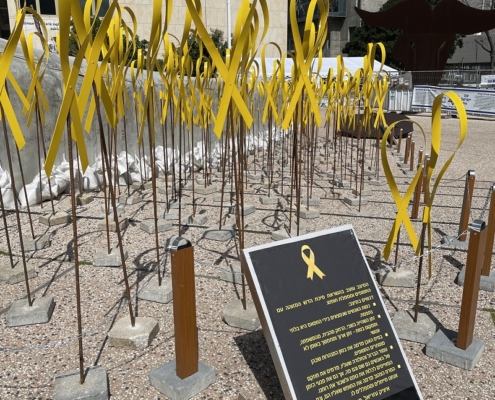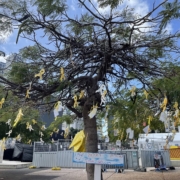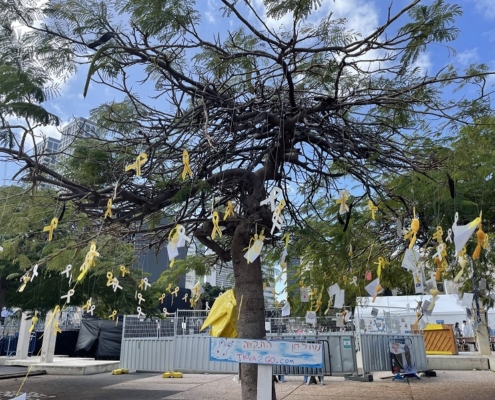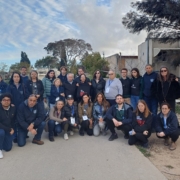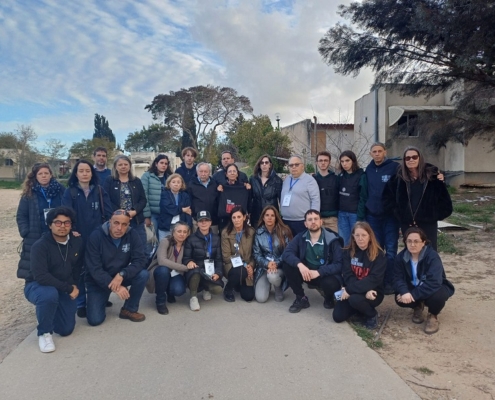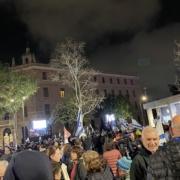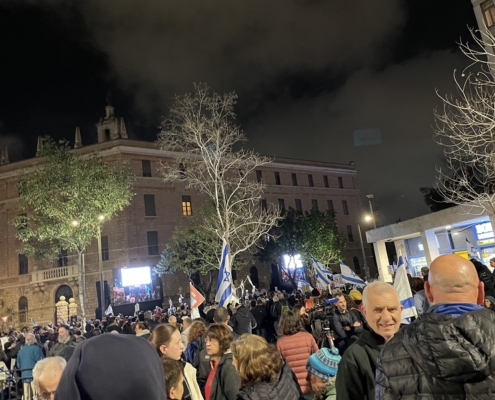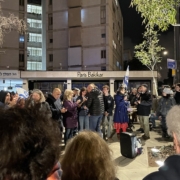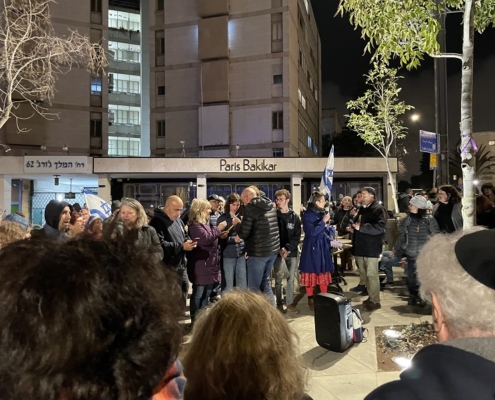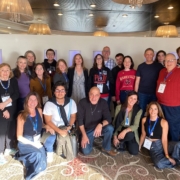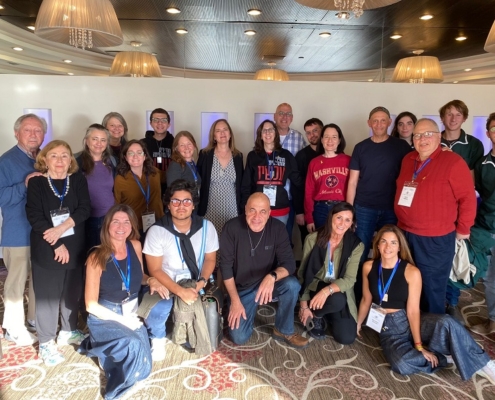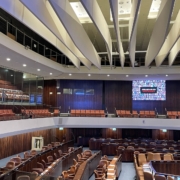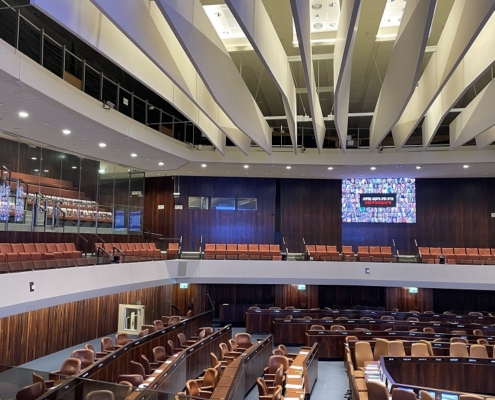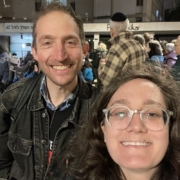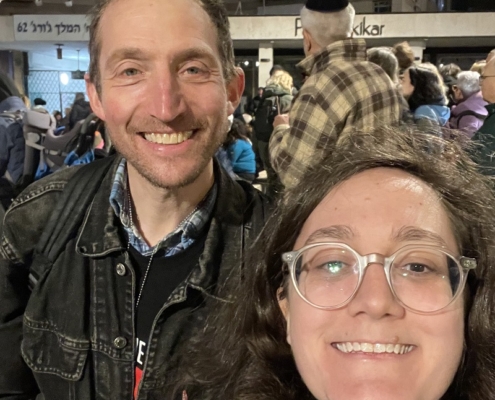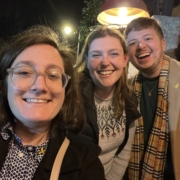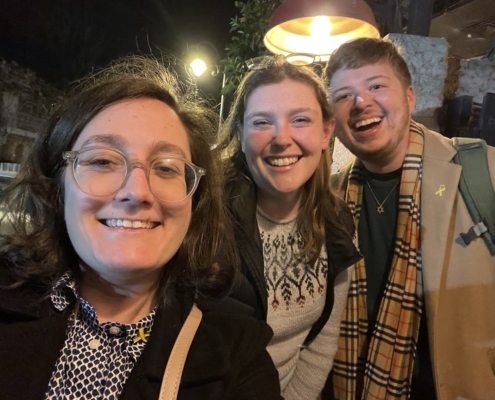Dear Holy Blossom,
I write to you from Israel, where I have been participating in the World Union for Progressive Judaism/Arzenu Solidarity Mission.
The Parasha that we just read, this past Shabbat in which I was away from you all at home, was Parashat Ki Tissa, in which we learn of the infamous “ma’aseh ha’egel”, the incident of the Golden Calf.
The Talmud then teaches us that the tablets Moses smashed in his rage and response to witnessing the Israelites worshipping a false idol were then placed into the Ark of the dessert Tabernacle that the people had just finished constructing.
As I continue to process this experience, I offer a few of my own currently fragmented thoughts.
Everything is the same, but different.
I’ll be honest that walking through the airport was almost like waking up from a dream in which things are going well, or you’re living out a fantasy. After last being here four years ago, I was so excited about being back.
In that happy fog of returning to Israel, walking through the airport, and, all of a sudden, my eyes were woken up to the reality of Israel’s war with Gaza.
It was eerily quiet for Ben Gurion.
There are many signs pointing to various shelter locations.
There is a gigantic display regarding the hostages.
Their faces line the walkway to the customs hall.
Which brings me to …
The hostages.
They are everywhere. Every highway. Every overpass. Every billboard. In Kikar HaChatufim (Hostages Square). It’s been 150 days as I write this. How absurd. How surreal. Their families miss them so much.
The people.
They are, perhaps unsurprisingly, the best part of the mission. The other participants. The new people we’ve met. The relationships we’ve formed. The old friends I’ve been so fortunate enough to see (by the time you read this, I’ll be at dinner with our own HUC students, Hannah Byrne-Wolfson and Will Brockman), and to hug. The family I’ll be seeing tomorrow and giving hugs to. So many hugs.
The partnerships.
What’s been a little astounding is that, unprompted, anywhere we have been – from meeting with our Israeli Reform Movement leaders to visiting Otef Aza (the Gaza Envelope) to engaging in the mitzvah of bikkur cholim (tending to the sick) with injured soldiers at Sheba-Tel HaShomer Hospital to seeing the exhibits, including one about October 7, at the ANU Museum – every single Israeli we have encountered has been gracious in their gratitude that we have been here to see them. They have each also expressed their concern about the situations we are facing in the Diaspora, and feel a closeness to us and to the idea of Peoplehood in a way that they admit they have not beforehand. Really, though, it’s our privilege, and even, responsibility.
It’s still Israel.
Despite everything, despite it all, despite the undercurrent of tension, well, it’s still Israel.
There are still people eating in cafes.
Playing volleyball on the beach.
Running along the waterfront.
Running into congregants at the Havdallah demonstration in solidarity with hostage families on Saturday night.
Laughing. Smiling. Joking. The chutzpah.
So, why would we put these smashed tablets into the ark? Why be reminded of our failure? Our brokenness? Our pain?
Maybe because it is the reminder that, no matter where we go, we carry the past with us – and October 7 is very much still a part of the traumatised psyche of our Israeli brothers and sisters, and that’s not changing anytime soon, especially without the return of every single one of the hostages. That part was, and is, clear.
Yet, it is also a reminder that, with that eternally Israeli, that eternally Jewish, streak of optimism, we can also look ahead with hope that we can move to the next phase, and build something better than existed beforehand.
As the Chassidic Rabbi Menachem Mendel of Kotzk said, “nothing is more whole than a broken heart”.
We pray for a future that is whole and that is peaceful, as illustrated in these words from Israeli poet Shaul Tchernikovsky, which we sang after Kabbalat Shabbat on this mission:
A’aminah gam b’atid,
Af im yirchak zeh hayom,
Ach bo yavo, yis’u shalom,
Az u’v’racha l’om mi’l’om
I believe, too, in the future,
Though that day is not close at hand.
Yet, it will come, peace will uplifted,
And blessing will be borne from land to land.
Finally, thank you to my extraordinary colleagues, and to you, our extraordinary congregation, for enabling me to take this opportunity, and for this meaningful time and space.
See you back home this Shabbat.
Shalom al Yisrael.

